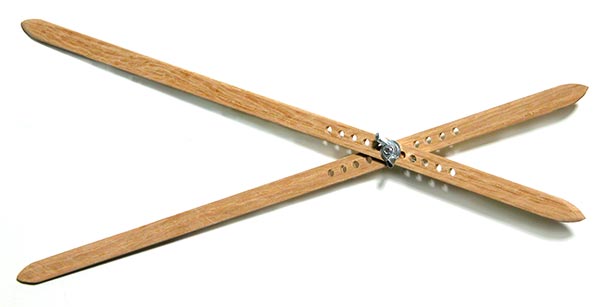The reason I recommend using a proportional divider is that over time, it will to teach you to draw freehand. It will force you to see the world in simple proportion as an artist should. I have seen many of my students learn to draw after using a proportional divider for only a few paintings. Even those students who claimed they could not draw a "stick figure" beforehand.
What the proportional divider does is reduce a complicated three dimensional subject into simple points and angles, which I will demonstrate here with this still life I painted:
 |
| click to enlarge |
In the image below I have plotted all the major points. I also drew a vertical line down the middle of all the symmetrical objects as well as a box around the elephant. There is nothing difficult about any of this, it is simple measuring and plotting of points directly from your subject (either from a photo or from life).
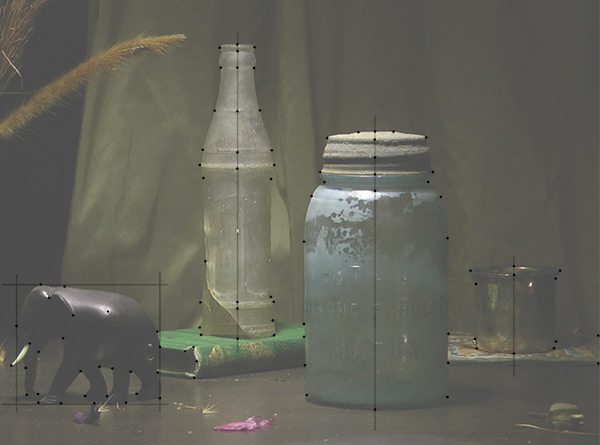
Next I have plotted my angles, also by using the proportional divider. These are just short straight lines that indicate the line's angle as it intersects a given point. I have also drawn in all the obvious straight lines.
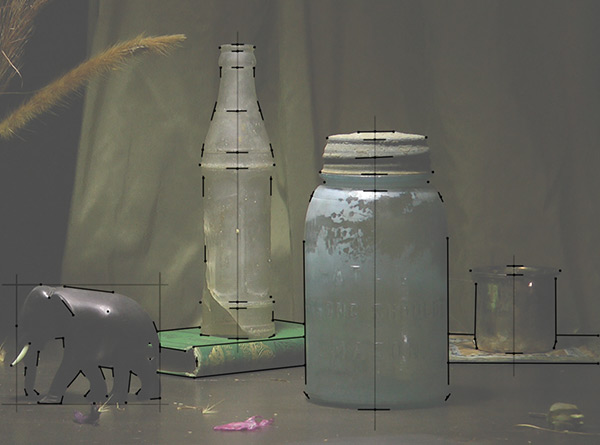
This is very helpful, as you can see in the image below. Notice how we can begin to see the shapes of the objects even with only a few points and angles drawn in.
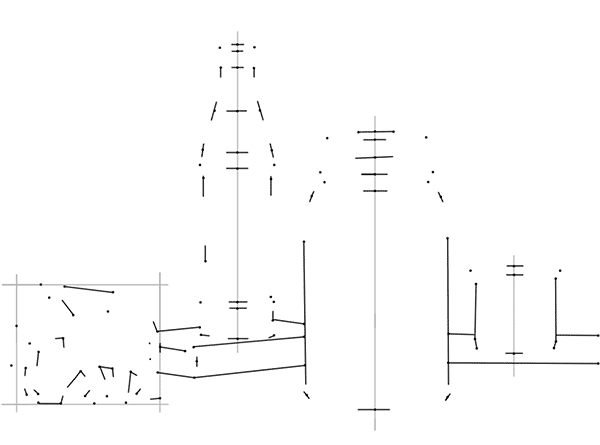
The last thing to do is to draw in all the easy curves. These are all the curved lines we can draw by using the points and angles as a guide.
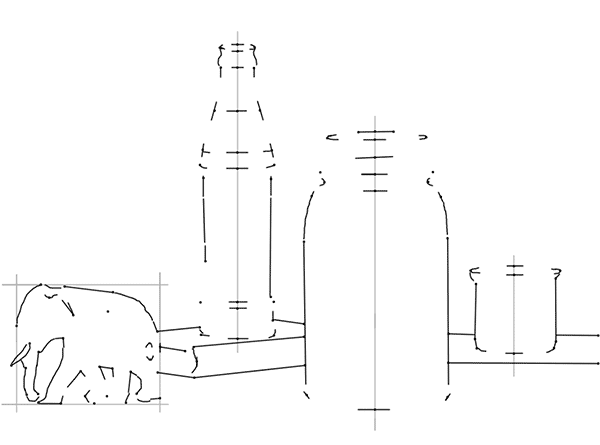
All that is left is to freehand in the remaining lines.
For more detailed instruction on drawing with a proportional divider, you can watch my free video: how to draw in proportion
— Mark Carder
my free videos: drawmixpaint.com
my free videos: drawmixpaint.com
Have questions or comments? Click here to discuss this post.
